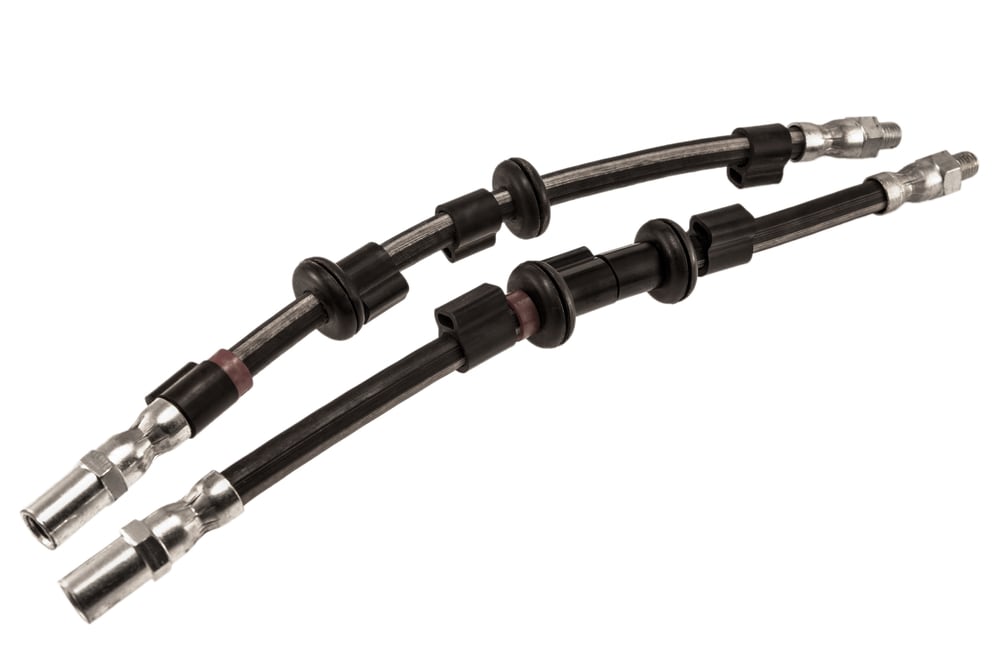

Brake lines are metal hardlines that are found on virtually all modern vehicles. They serve as the piping for the braking system, which operates using hydraulic pressure. The brake lines take the fluid from the master cylinder down to the wheels, through the flexible brake hoses and into the vehicle’s calipers or wheel cylinders. Most brake lines are made of steel to withstand high pressures and exposure to the elements. However, over time, they can develop problems. Any problems with the brake lines become a problem with the braking system, which becomes a safety issue for the vehicle. Usually faulty brake lines will produce a few symptoms that can alert the driver that service may be required.
1. Leaking brake fluid
The most common way that brake lines fail is that they begin to leak. They are usually made of steel and capable of withstanding pressures. However, they can sometimes become worn or damaged as the vehicle is driven and are susceptible to leaks. Depending on the severity of the leak, when a brake line fails, brake fluid may quickly leak out when the brakes are applied.
2. Brake Warning Light comes on
Another symptom that may indicate this problem has progressed further along is an illuminated Brake Warning Light. The brake light will come on when the brake pad wear sensors are activated and when the fluid drops below a certain level. Usually if the brake light comes on in relation to a failed brake line, this means that the fluid has leaked out below an acceptable level and that attention may be required.
3. Corrosion on brake lines
Another symptom of a problem with the brake lines is corrosion. Corrosion can be caused by exposure to the elements. As it builds up, this can weaken the lines making them more susceptible to leaks. Corrosion on brake lines are more common on vehicles that are driven in snowy climates where salt is used to remedy icy roads.
As the brake lines are essentially part of the plumbing for the braking system, they are very important to the overall vehicle safety. Usually damaged brake lines will need to be replaced, and because brake hard lines are all made at specific lengths and bent in very specific ways, special tools and knowledge are required to service them. For this reason if you suspect that one or more of the brake lines on your vehicle may be having a problem, have the vehicle’s brake system inspected by a professional technician, such as one from YourMechanic, to determine if your car needs a brake line replacement.



